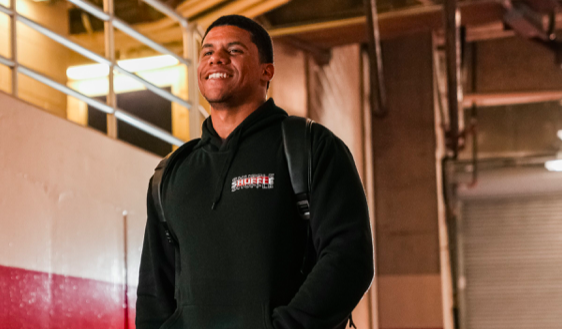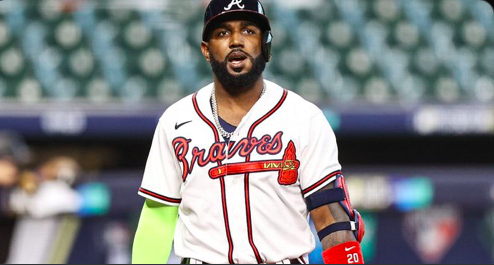This month marks the 20th anniversary of the 1994 Major League Baseball players strike. The work stoppage resulted in the cancellation of the remainder of the '94 season and the World Series.
Baseball eventually rebounded and has grown to new financial heights under the leadership of Commissioner Bud Selig who retires at the end of this season. The many developing storylines and record chases that were washed away like a bag of bud at the beach are considered mere casualties of baseball business warfare.
It’s the biggest "woulda, coulda, shoulda" scenario in baseball history. Tony Gwynn’s quest for .400 was halted at .394 and blazing. Matt Williams had 43 bombs when play ceased and that Roger Maris 61 talk was really popping.
The Yankees were in rebirth-mode and Don Mattingly was seeking his first World Series. In the aftermath, Gwynn and Williams would never be as formidable. Mattingly retired with a bad back and no World Series glory, but the loss the Expos franchise took that season was most debilitating.
A World Series dream turned into a swan song for a NL franchise that had produced ballers like Gary Carter and Tim “Rock” Raines and later Vlad Guerrrero, since entering the league as an expansion team in 1969.
“The Strike” had no love for the Expos.
In the end, it sparked a “Golden Rush Era” for MLB. It set the stage for the Steroids Era – the evil flipside of that glorious, power-packed time. With it came billion dollar TV deals and eventually revenue sharing, not to mention a luxury tax, which slowly tilted the scales, slowed the growth of the rich teams and allowed small market teams to join the free agent cash toss every once in a while.
The small market squads that were to benefit from these labor wars—which weren't fully agreed to until spring 1997, two years after the strike ended—didn’t include the Expos who dismantled a stacked 1994 roster and a decade later became The Washington Nats.
When the strike hit, the Expos had an league-best 74-40 record and a six-game lead in the National League East. This was going to be the Expos' finest MLB moment. The Expos almost took the World Series in ’81. It was supposed to go down smooth as a strawberry shake this time.
After a 4-9 skid out of the gate, which left the team eight and a half games out of first place on April 18, manager Felipe Alou started pressing the correct buttons and by mid-July Montreal had overtaken the Atlanta Braves for the division lead and quickly started to pull away from the pack.
The 1994 Expos was a team full of young studs with tremendous upside and a combination of power, defense and incredible speed. The squad was oozing with talent and on the serious comeup having won 94 games in 1993.
Sean Berry, a 28-year-old third baseman in just his second season was the O.G. The outfield was blessed with three budding 27-year-old stars; Moises Alou, centerfielder Marquis Grissom and Larry Walker. Alou was the son of the skipper and finished third in the MVP voting in ‘94. He went on to hit 332 career homers and boasts a .303 career batting average over 17 seasons.
Grissom was the catalyst of an omnipotent Expos offense. Since coming into the league in 1990, Grissom was a multi-tool baller, All-star and MVP candidate with a rare skills.
Most people know Larry Walker from those statistically-obscene seasons he had for the Colorado Rockies during a PED-enhanced era, hitting in a launching pad (Coors Stadium). Walker started his career with the Expos organization in 1984 and was in his fifth full MLB season. Walker, also wicked with the glove, had already won two Gold Gloves in right field. .
The rest of the lineup was filled with other young guns and solid cats seemingly destined to help the Expos contend for years to come. There was 21-year-old Cliff Floyd at first base, 22-year-old Wil Cordero at shortstop, 26-year-old Mike Lansing at second base and 27-year-old Darrin Fletcher behind the plate. The bench was dope too and included future All-Star outfielder Rondell White.
The Expos staff tied Atlanta for the lowest earned run average in the league with a 3.57 mark. The rotation featured 28-year-old ace Ken Hill and a baby-faced Pedro Martinez who was acquired following the 1993 season from the Dodgers in a trade for speedster Delino Deshields. That season Hill was vicious like O-Dog in Menace II Society. He won 16 games and finished second in the Cy Young voting.
Closer John Wetteland was a beast too. Wetteland had saved 80 games in his first two seasons with the Expos team and would add 25 in a strike-shortened 1994. Mel Rojas was a lethal setup man for Wetteland and could close if needed (16 saves).
It was truly Montreal’s (hockey capital) finest baseball moment, and to this day they have a right to say, “We wuz robbed.”
When baseball did finally return in late-April of 1995, the Expos were not the same. Walker, Grissom. Hill and Wetteland were ghost and predictably, with the heart if the team gutted the Expos would win eight fewer games in a 144-game 1995 season than they did in a 114 game season the previous year. While Montreal spiraled into the MLB basement, Grissom was earning World Series shines in Atlanta and Wetteland would help jump start the Yankees Dynasty of the late 90s and win a World Series in 1996 and after leaving the Expos,
After 1996, Alou left as a free agent and 25-year-old starting pitcher Jeff Fassero and Floyd were traded. Alou and Floyd became supreme ballers and captured WS rings with the Florida Marlins in 1997. And after winning a Cy Youn in 1997, Pedro was shipped off to Boston, where his legend truly began and two more Cy Young awards followed.
By 1998, the Expos had revamped the entire squad as none of the position starters or primary pitchers from the great 1994 gang were still on the team. Then in 2005, baseball kissed Montreal farewell for good. Instead of playing in a new downtown stadium as many fans anticipated, the franchise bounced to D.C. and became the Washington Nationals.
Legions of baseball fans still feel cheated out of that 1994 season, and most of them were probably Expos supporters. They probably feel like hip-hop fans who were anxiously anticipating a Biggie-Tupac album that was supposedly in the works before their tragic deaths. Baseball has recovered. So have 99 percent of the fans. But the Expos never will.



